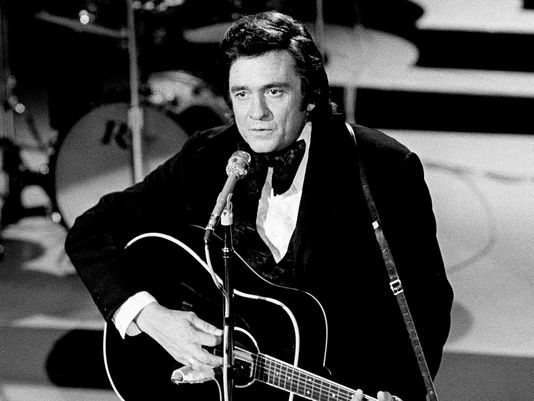In 1954, Johnny Cash walked into the audition room at Sun Record Labels. At the time, he was a nobody. He was selling appliances door-to-door and playing gospel songs at night with two buddies. He was broke, and his marriage was in ruins. Scoring a record deal was the only hope of salvaging his life.
If you were standing in that audition room, you could certainly empathize with Cash’s choice to sing a gospel song. It’s what Cash knew best. What’s more, gospel was popular in 1954. Everyone else was singing it. It was the safe bet.
The audition, as depicted in the movie Walk the Line, doesn’t go as Cash planned. As Cash begins to sing a slow, dreary gospel song, the record label owner (Sam Phillips) restrains himself for all of thirty seconds before interrupting Cash.
Phillips says: “We’ve already heard that song. A hundred times. Just like that. Just like how you sang it.”
Cash protests, “Well, you didn’t let us bring it home.”
Phillips responds with a speech that ends up changing Cash’s life:
“Bring it home? Alright, let’s bring it home. If you was hit by a truck and you was lying out there in that gutter dying, and you had time to sing one song. One song that people would remember before you’re dirt. One song that would let God know how you felt about your time here on Earth. One song that would sum you up.
You tellin’ me that’s the song you’d sing? That same Jimmy Davis tune we hear on the radio all day, about your peace within, and how it’s real, and how you’re gonna shout it?
Or . . . would you sing somethin’ different? Somethin’ real. Somethin’ you felt.
Cause I’m telling you right now, that’s the kind of song people want to hear. That’s the kind of song that truly saves people. It ain’t got nothin to do with believin’ in God, Mr. Cash. It has to do with believin’ in yourself.”
This rant jolts Cash out of his conformist, let-me-sing-you-some-good-old-gospel attitude. It brings out the contrarian in him that’s been buried down by a crushing mortgage, a stale marriage, and too many years in the Air Force.
He stops trying to be a gospel singer.
In that moment, he becomes Johnny Cash.
He collects himself and tells Phillips that he’s going to play a little something that he wrote when he was in the military.
He starts strumming his guitar and singing the Folsom Prison Blues in that deep, distinctive voice of his:
“I hear the train a’coming, it’s rollin’ round the bend, and I ain’t seen the sunshine since I don’t know when, I’m stuck in Folsom Prison and time keeps draggin’ on…”
(Click here to watch the scene).
He walks out of the audition room with a record contract.
All because he rejects his natural tendency to conform and embraces everything that sets him apart from others–his somber demeanor, his inimitable voice, those dark black clothes that would go on to earn him the nickname, “The Man in Black,” and the way he says, “Hello, I’m Johnny Cash” at the beginning of each concert–as if the crowds didn’t know.
The transition of Johnny the gospel singer to Johnny Cash the legend holds important lessons for us all.
Most people try to emulate the titans that came before them. We’re in a race to the center, singing the same old gospel song. Our internal narrative tells us to play it safe and go with what’s worked in the past.
But, as Cash quickly realized, there are way too many aspiring gospel singers. You can’t get ahead if you’re simply following.
It’s only by embracing your distinctive qualities–those that the world tries so hard to beat into conformity—that your inner Johnny Cash can emerge.
Bold


